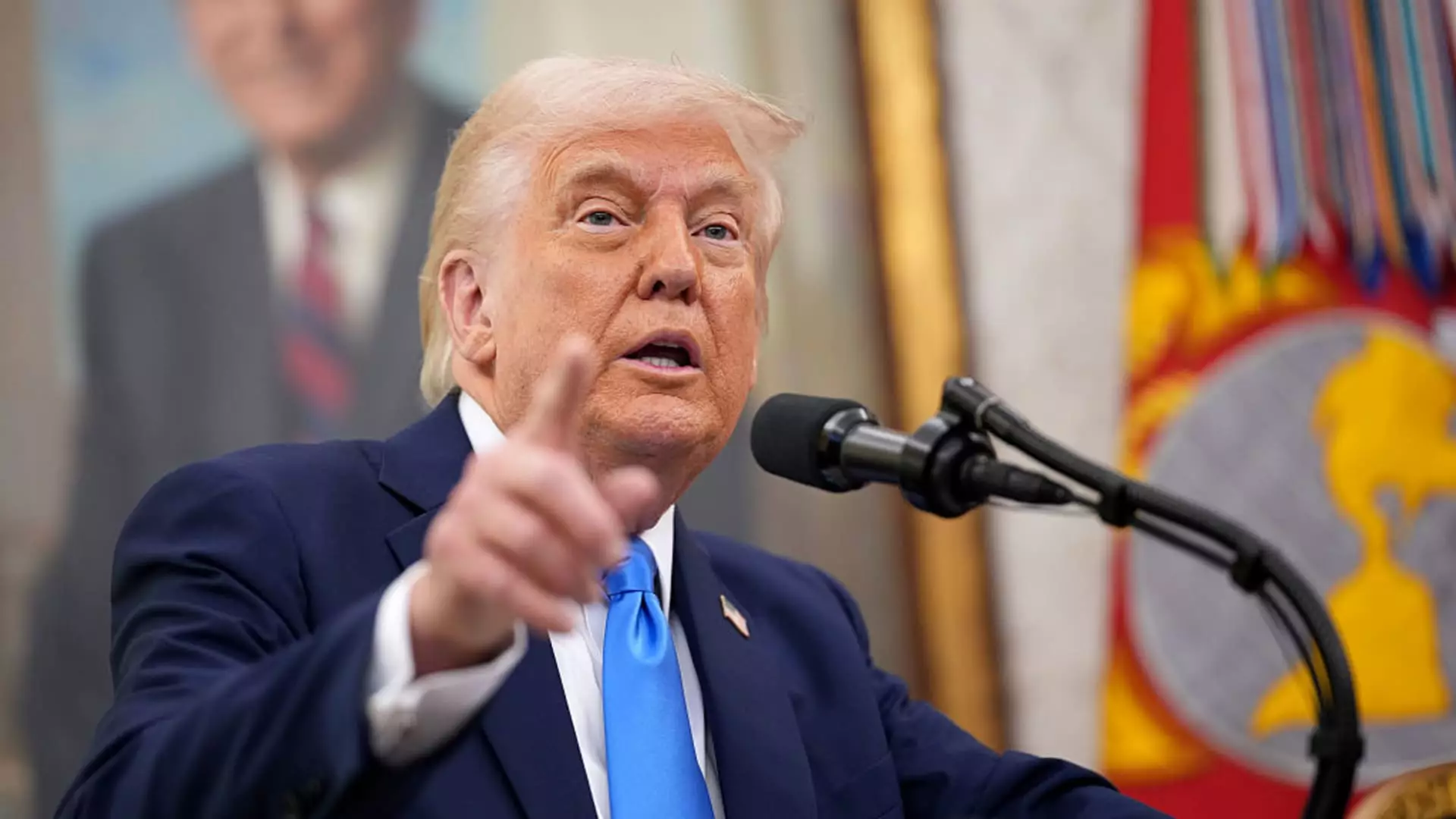President Donald Trump’s impending announcement of a sweeping set of tariffs has sparked both anticipation and trepidation among economists, politicians, and businesses alike. He characterizes this initiative as a historic moment, heralding it as “America’s liberation day.” Yet, beneath this confident façade lies a bewildering array of uncertainties that raise legitimate concerns about whether this strategy can deliver the promised economic rejuvenation or whether it will plunge us deeper into a state of economic predation. The overblown optimism seems to ignore critical insights from economic history, where protectionist measures have often incited retaliatory actions and escalated trade wars, producing deleterious effects on all parties involved.
Trump’s assertion that America is a victim of unfair trade practices captures the sentiment of many who feel left behind in a globalized economy. However, as prices rise from imposing tariffs, citizens who already faced economic disenfranchisement may find themselves shouldering an even heavier burden. Economists widely agree that while having more imports than exports may indicate a trade deficit, it is not inherently negative; rather, it indicates an economy with robust consumer demand for superior products or cheaper alternatives.
Defining “The Dirty 15” and “Reciprocal Tariffs”
Among the more contentious elements of this trade announcement is the concept of “reciprocal tariffs,” aimed at countries that impose their own duties on American products. Treasury Secretary Scott Bessent’s reference to the enigmatic “Dirty 15” raises eyebrows: what does this term mean, and why shroud it in secrecy? By not naming names, the administration effectively creates an atmosphere of distrust between U.S. trading partners, resulting in a climate of ambiguity that may stifle future negotiations. The essence of diplomacy lies in clarity, yet the Trump administration seems intent on cultivating an environment of chaos and uncertainty.
Compounding the confusion is Trump’s fluctuating stance on the number of countries to be affected. While expressing a desire to target all nations participating in global trade, his administration has hinted at focusing only on those that represent a substantial portion of America’s swelling trade deficit. This inconsistency sets the stage for a costly miscalculation. Should retaliatory actions arise from nations that feel unjustly targeted, the U.S. stands to face significant economic repercussions, not to mention a potential decline in its global standing as a trade leader.
Echoes in the Economic Landscape
The economic implications of Trump’s proposed tariffs extend well beyond the individuals involved. A multitude of sectors, from manufacturing to agriculture, might experience the ripple effects of this policy. By imposing steep tariffs on imports, domestic manufacturers may find relief from international competition in the short term; however, the overall economy could contract due to increased consumer prices and a decrease in international sales. Farmers, particularly in corn and soybean markets, have already voiced their concerns about potential losses due to retaliatory tariffs from key trading partners. The logical next step involves questioning: Is this wave of tariffs genuinely a strategic gambit or simply a populist ploy?
Moreover, the impulse to shield American jobs from foreign competition carries dangerous consequences. The existing systems that incentivize American businesses to invest in skills training and innovation may slowly erode under the weight of tariffs. By insulating domestic industry from competition, companies might experience less impetus to optimize operations or invest in workforce development—two critical components of a dynamic and resilient economy. The trade landscape could become a high-stakes game, where the only play is to weather tariffs, leaving innovation on the bench.
The Illusion of Strongman Politics
Trump’s bravado around tariff implementation plays into the narrative of strongman politics, where decisive moves, regardless of long-term impact, are heralded as victories. Such a stance not only jeopardizes America’s economic relationships but also mocks the principles of pluralism and open engagement that have birthed unprecedented growth and innovation over the last few decades. By painting trading partners as adversaries, Trump risks deepening the divides, both domestically and globally, leaving room for the proliferation of protectionist sentiments that could shackle American businesses in unyielding chains.
As the rhetoric surrounding tariffs swirls, one wonders whether America is genuinely prepared for the consequences of this high-stakes economic strategy. If the aim is to foster a robust economy that thrives on innovation and collaboration, then leadership must align with values that promote fairness and transparency rather than chaos and confusion. The road ahead may be fraught with challenges, but one thing is clear: steering the nation toward a cooperative global economy requires more than mere bravado; it demands thoughtful, strategic engagement.


Leave a Reply